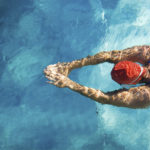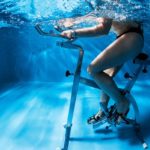WHAT IS THE ROLE OF HYDRATION ANYWAY?
You cannot always see dehydration, but it is crucial you do not ignore it. The reason is that almost every single chemical reaction in the body depends upon water, and in Every single chemical reaction in the body depends upon water. In order for the body to perform at it’s very best, we MUST be properly hydrated. FUNCTIONS OF WATER IN THE HUMAN BODY- • Improves oxygen delivery to the cells
- • Transports nutrients (very important for healing)
- • Enables cellular hydration
- • Promotes health mucosal membranes (i.e., GI tract, respiratory tract, urinary tract)
- • Cushions and lubricates bones and joints (i.e., arthritis, joint pain)
- • Absorbs shocks to joints and organs
- • Regulates body temperature (i.e., hot flashes, cold hands/feet, intolerance to hot/cold)
- • Removes wastes and flushes toxins (i.e., detoxification)
- • Improves cell-to-cell communications (i.e., mental function, coordination)
- • Maintains normal electrical properties of cells (i.e., mental function, fatigue, muscle soreness)
- • Allows immune system to function properly
If we are not hydrated properly, the body should signal us.
WHAT ARE THE SIGNS AND SYMPTOMS OF DEHYDRATION
You cannot always see dehydration, but it is crucial you do not ignore it. Your body is approximately 67% water by weight. If your body’s water content drops by as little as 2%, you will feel fatigued. If it drops by 10% you will experience significant health problems. Losses of water over time are a real threat to our health, yet Americans don’t drink enough water.SYMPTOMS:
- • Fatigue
- • Lack of energy
- • Irritability
- • Thirst
- • Dry or sticky mouth
- • Not peeing very much
- • Dark yellow pee
- • Dry, cool skin
- • Headache
- • Muscle Cramps
- • Sunken eyes
- • Dizziness
- • Rapid heart rate
- • Rapid breathing
- • Fever
- • Constipation
- • Increased perception of effort
HOW MUCH WATER DO YOU NEED?
Every day you lose water through your breath, perspiration, urine and bowel movements. For your body to function properly, you must replenish its water supply by consuming beverages and foods that contain water. The National Academies of Sciences, Engineering, and Medicine determined that an adequate daily fluid intake is:- • About 15.5 cups (3.7 liters) of fluids for men
- • About 11.5 cups (2.7 liters) of fluids a day for women
These recommendations cover fluids from water, other beverages and food. About 20 percent of daily fluid intake usually comes from food and the rest from drinks.
You don’t need to rely only on what you drink to meet your fluid needs. What you eat also provides a significant portion. For example, many fruits and vegetables, such as watermelon and spinach, are almost 100 percent water by weight.
Your fluid intake is probably adequate if:
- • You rarely feel thirsty
- • Your urine is colorless or light yellow
A doctor or registered dietitian can help you determine the amount of water that’s right for you every day.
To prevent dehydration and make sure your body has the fluids it needs, make water your beverage of choice. It’s also a good idea to:
- • Drink a glass of water or other calorie-free or low-calorie beverage with each meal and between each meal.
- • Drink water before, during and after exercise.
- • Drink water if you’re feeling hungry. Thirst is often confused with hunger.
NOW ADD EXERCISE
Although uncommon, it’s possible to drink too much water. When your kidneys can’t excrete the excess water, the sodium content of your blood is diluted causing (hyponatremia) — which can be life-threatening. Athletes — especially if they participate in long or intense workouts or endurance events — are at higher risk of hyponatremia. In general, though, drinking too much water is rare in healthy adults who eat an average American diet. Sports drinks should be used only when you’re exercising intensely for more than an hour. These drinks help replace electrolytes lost through perspiration and sugar needed for energy during longer bouts of exercise. Energy drinks are different from sports drinks. Energy drinks generally aren’t formulated to replace electrolytes. Energy drinks also usually contain large amounts of caffeine or other stimulants, sugar, and other additives.BE ALERT FOR CONDITIONS THAT INCREASE FLUID LOSS THROUGH SWEAT
- • Air Temperature: The higher the temperature, the greater your sweat losses.
- • Intensity: The harder you work out, the more you perspire.
- • Body Size and Gender: Larger people sweat more. Men generally sweat more than women.
- • Duration: The longer the workout, the more fluid loss.
- • Fitness: Well-trained athletes perspire more than less fit people. Why? Athletes cool their bodies through sweat more efficiently than most people because their bodies are used to the extra stress. Thus, fluid needs are higher for highly trained athletes than for less fit individuals.
Remember swimmers sweat, too. Like any athletic activity, when you swim, your body temperature rises and your body sweats to keep from overheating. You may not notice because you are in the water, but you can become dehydrated. Swimmers, from competitive athletes to families splashing around, need to drink fluids before, during and after swimming, even if you don’t feel thirsty.








